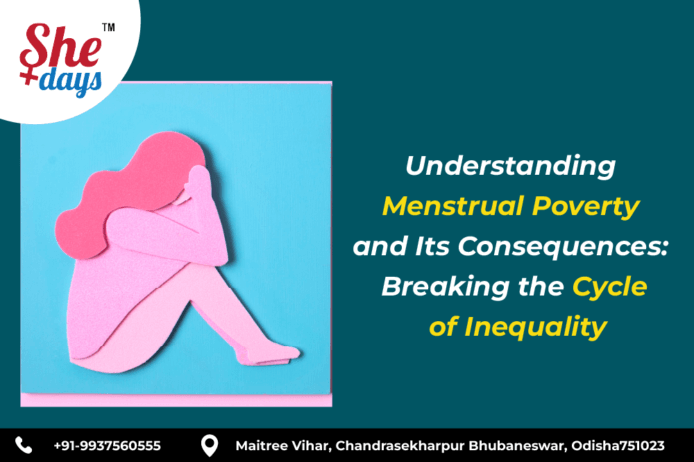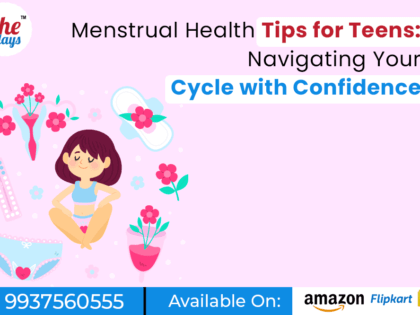Understanding Menstrual Poverty and Its Consequences: Breaking the Cycle of Inequality

Menstrual poverty refers to the lack of access to affordable and safe menstrual products, along with inadequate facilities and education surrounding menstruation. It is a multifaceted issue that disproportionately affects marginalized communities. The inability to manage menstruation properly can have detrimental effects on physical health, emotional well-being, and social inclusion.
To grasp the true impact of menstrual poverty, we must listen to the stories of those directly affected. Women and girls in disadvantaged sectors often resort to unhygienic practices, such as using old rags, newspapers, or even leaves as makeshift pads. This can lead to severe health complications, including infections, rashes, and urinary tract infections. Moreover, the shame and stigma associated with menstruation can have a profound psychological impact, eroding self-esteem and limiting opportunities for education and social participation.
Menstrual poverty is a complex subject with multiple interrelated causes. Socio-economic differences play a significant role, as many individuals and communities struggle to afford menstrual products. Limited access to education, awareness and information about menstruation propagates the cycle of ignorance and perpetuates taboos. Cultural and social norms surrounding menstruation also contribute to the exclusion and marginalization of menstruating individuals.
One critical aspect of addressing menstrual poverty is comprehensive menstrual health education. Empowering girls and boys with accurate information and awareness about menstruation is essential to break the silence and challenge misconceptions. By integrating menstrual health education into school curriculum, we can equip young individuals with the knowledge and understanding they need to manage their periods safely and confidently. Education creates awareness which also helps to normalize menstruation and reduce the stigma associated with it.
Ensuring the availability and affordability of menstrual products is a fundamental step in combating menstrual poverty. Governments, NGOs, and private organizations must work together to make quality menstrual products accessible to all individuals, regardless of their socio-economic background. This includes initiatives such as providing free or subsidized products in schools, community centers, and healthcare facilities. Additionally, exploring innovative solutions, such as local manufacturing and community-based distribution networks, can further improve accessibility and reduce costs.
Promoting sustainable menstrual hygiene options is essential for long-term solutions to menstrual poverty. Reusable cloth pads, menstrual cups, and eco-friendly alternatives not only reduce waste but also offer cost-effective and sustainable options. By encouraging the usage of these environmentally friendly alternatives, we can empower individuals to take control of their menstrual health while contributing to a greener future. Awareness about environmental impact of disposable products is crucial in fostering conscious choices and sustainability.
Addressing menstrual poverty also involves in creating supportive and inclusive workplace environment. Employers should recognize the unique challenges faced by menstruating employees and provide adequate facilities, such as clean and private restrooms, as well as access to affordable menstrual products. Implementing workplace policies that promote menstrual equity, such as flexible work hours and menstrual leave, can empower individuals to manage their periods without compromising their productivity or well-being.
Achieving meaningful change requires collaboration and partnerships between governments, non-profit organizations, businesses, and communities. By gathering resources, expertise, and networks, we can amplify our impact and reach the needy. Collaboration between different stakeholders can lead to innovative solutions, strategic advocacy, and sustainable interventions. Engaging local communities in decision-making processes ensures that initiatives are contextually relevant and address specific challenges faced by different sections of population.
Breaking the silence surrounding menstruation is a critical step towards menstrual equity. By amplifying the voices of those affected by menstrual poverty, we can create a platform for dialogue, advocacy, and awareness. Sharing personal stories, experiences, and testimonials helps to humanize the issue and challenge the stigma. Engaging in open and honest conversations about menstruation can empower individuals, dismantle taboos, and foster supportive communities that embrace menstrual health as a normal and natural part of life.
Advocacy and policy change are pivotal in challenging the systemic barriers leading to menstrual poverty. Governments must recognize menstrual health as a fundamental human right and prioritize it in their policies and budget allocations. Comprehensive menstrual hygiene management should be integrated into healthcare systems, educational institutions, and workplace environments. Moreover, advocacy efforts are crucial to raise awareness, challenge cultural taboos, and push for legislative changes that promote menstrual equity.
The fight against menstrual poverty requires a multifaceted approach that addresses affordability, accessibility, education, and sustainability. By understanding the deep-rooted consequences of menstrual poverty and its underlying causes, we can drive meaningful change. Governments, organizations, communities, and individuals must join forces to break the cycle of inequality and ensure that every woman and girl can manage their periods with dignity and without barriers. Investing in menstrual health is not only a matter of human rights but also a stepping stone towards a more equitable and empowered society.





